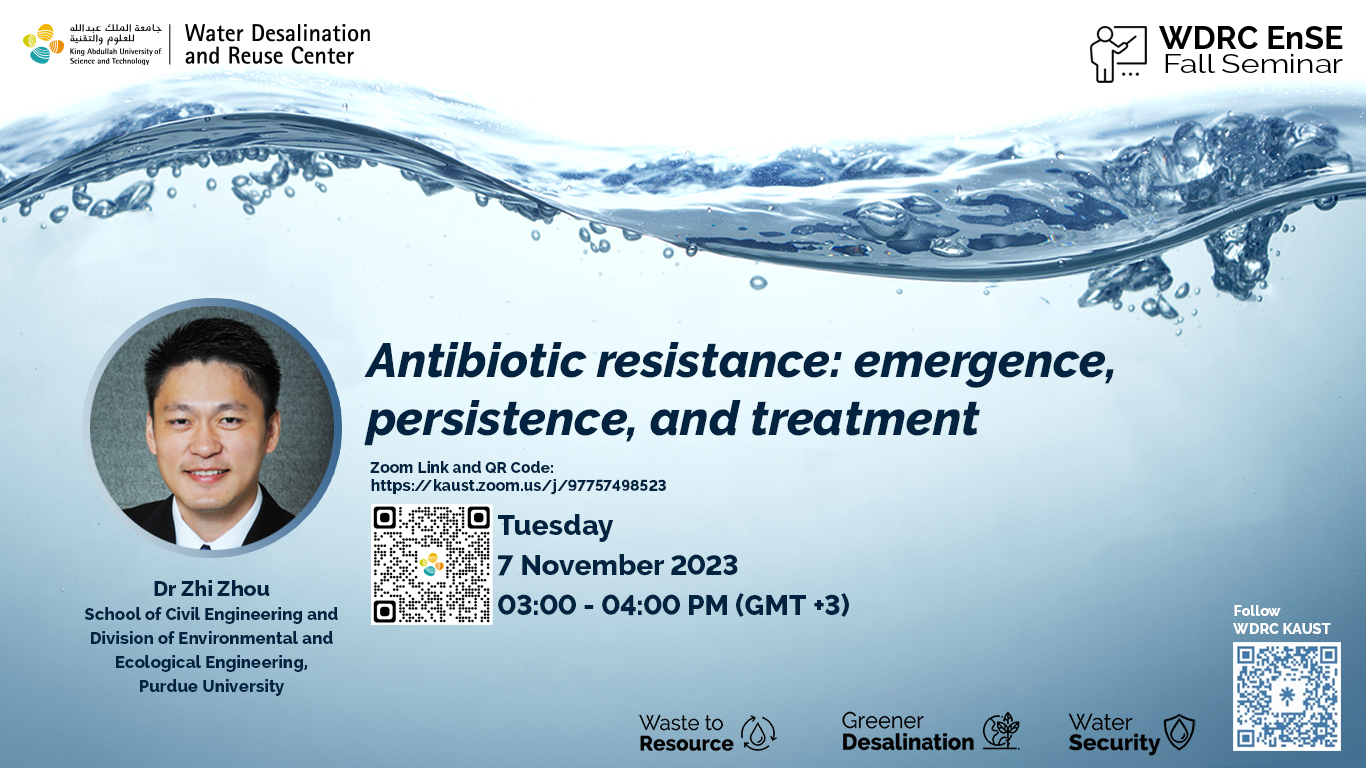



Antibiotic resistance is a major public health risk and kills over one million people worldwide every year. It is expected that antibiotic resistance will kill 10 million people every year by 2050. Large amounts of antibiotics have been used in human medicine and animal industry and discharged to the environment, but our existing wastewater treatment plants and drinking water treatment plants are not designed to remove antibiotics. Trace-level antibiotics in engineered systems and the natural environment are posing significant selective pressure for the development of antibiotic resistance. Sub-therapeutic level antibiotics and nutrient-deprived environments have further increased the transfer efficiency of antibiotic resistance genes among different groups of bacteria and created a long-term health risk to humans. In this presentation, the occurrence and spread of antibiotic resistance in animal farms, rivers, sediments, and soils and the effects of environmental factors will be discussed. Results of horizontal gene transfer and impacts of trace-level antibiotics and nutrients will be shared. The results of electrochemical filtration using carbon nanotubes to treat antibiotics and antibiotic-resistant bacteria and antibiotic-resistance genes will be shared as well.
Dr. Zhou is an associate professor of Civil Engineering and Environmental and Ecological Engineering at Purdue University. His research focuses on wastewater treatment, water reuse, water quality, and environmental biotechnologies. His recent projects include antibiotic resistance, cost-effective biofuels, electrochemical filtration, and indirect and direct potable reuse. Previously, he was an assistant professor at the National University of Singapore and a consulting engineer at Carollo Engineers in California. He is a licensed Professional Engineer (Civil Engineer) in California and a Board Certified Environmental Engineer (BCEE).